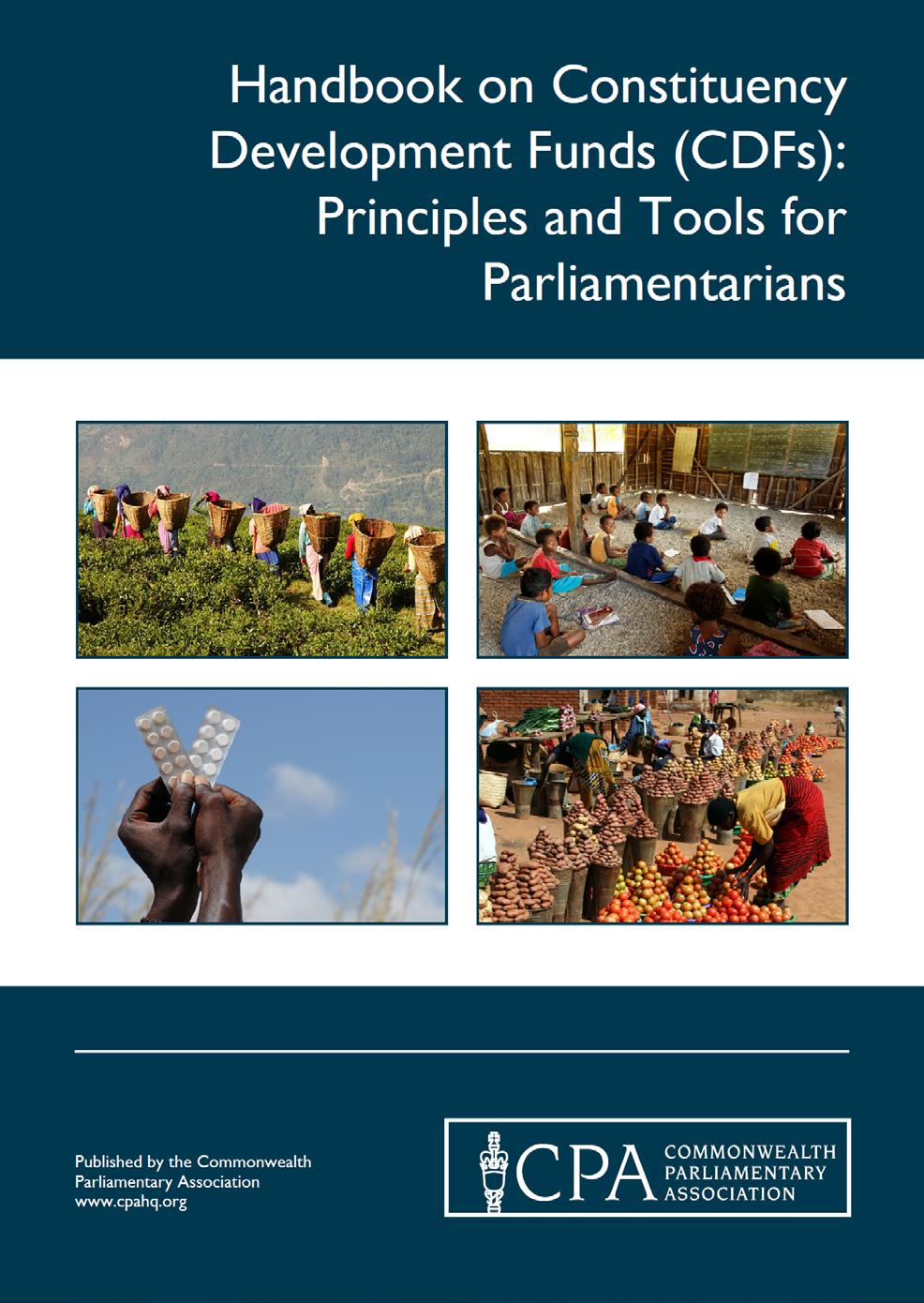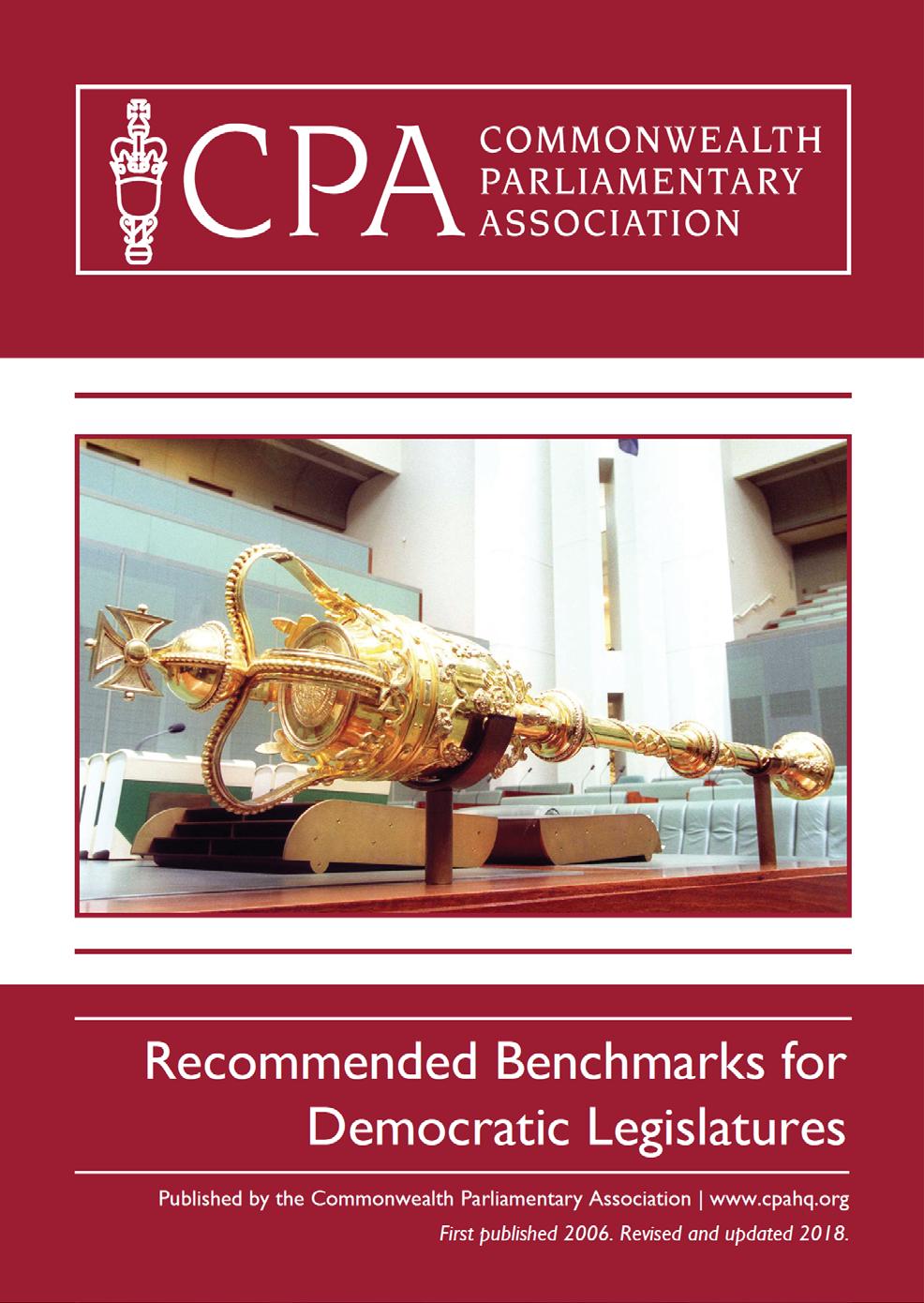
3 minute read
INTRODUCTION
Following the previous report published in 2005, this Report was produced to provide an update detailing the salaries, allowances, and privileges of Members throughout the Commonwealth. With the recent impacts of COVID-19, the harm of misinformation and the benefits of transparency are more pertinent than ever before. This Report aims to promote transparency of the remuneration of Parliamentarians across the Commonwealth. Transparency is a crucial element in building trust between the public and democratic institutions. It provides a means of regulation, which promotes good governance and best practice. This, in turn, helps to strengthen democracy by both holding Parliamentarians accountable and making parliamentary information more accessible to citizens.
The public increasingly demand transparency from Parliamentarians, especially after instances of corruption. Transparency is central to the fight against corruption by increasing opportunities for the detection of, and acting as a deterrent to, malpractice. Parliaments who opt for transparency surrounding remuneration of Members are participating in best practice for democracy.
Levels of corruption are indicative of the level of equitable response from parliaments in crisis situations. When finances are unfairly distributed, the funds required to address emergencies are not allocated in a way that benefits the majority. This often leaves essential services under resourced. Many parliaments have built trust and made steps to recovery through the transparency of parliamentary reporting during COVID-19. Consistent transparency from parliaments increases chances of social cohesion and responsibility in public emergency responses. It is important for parliaments to maintain a level of transparency and trust with every decision that they make, in order to preserve their credibility as institutions.
The CPA endorses the Declaration on Parliamentary Openness which directly aligns with the transparency described above and has been shown by the Commonwealth’s parliaments that provided responses to this Report. The Declaration on Parliamentary Openness requests commitment from parliaments to sustain a high level of civil engagement and transparency, which will ultimately lead to a more democratic society.
This Report also links to the United Nation’s Sustainable Development Goals, in particular Goal 16 on Peace, Justice and Strong Institutions, including the following targets:
• 16.1 Ensure public access to information and protect fundamental freedoms, in accordance with national legislation and international agreements.
• 16.5 Substantially reduce corruption and bribery in all their forms.
• 16.6 Develop effective, accountable and transparent institutions at all levels.
The CPA is dedicated to the ideals of parliamentary democracy and continues to support parliaments as they exercise practices in anti-corruption and openness of information on parliament. Below are some examples of work produced by the CPA in this sphere.
Constituency Development Funds (CDFs) provide funding to assist with development of national projects within constituencies. The CPA has produced a series of guidelines for the operation of such funds to eliminate opportunities for corruption. These guidelines provide parliaments with the tools for anti-corruption conduct.

The CPA released a series of Recommended Benchmarks for Codes of Conduct applying to Members of Parliament. Of particular relevance is Benchmark 3.1: “Disclosure and Publication of Interests; the code shall indicate that each Member shall disclose every interest which may create a perception of conflict between an interest and the duties and responsibilities set out in PRINCIPLES. It shall prescribe provisions to which each Member is subject, with provisions to the effect as follows”.

The CPA has also published Recommended Benchmarks for Democratic Legislatures, in which it is stated that, “legislators should maintain high standards of accountability, transparency, responsibility and propriety in the conduct of all public and parliamentary matters”. Section 1.5 of the Benchmarks also states that, “The Legislature shall provide fair and appropriate remuneration and reimbursement of parliamentary expenses to legislators for their service, to ensure that they give priority to parliamentary duties. All forms of compensation shall be allocated on a nonpartisan basis”.

This Report builds on the work described above. Having a comparative analysis of this scale provides Commonwealth Parliaments with a benchmark of what is typical, both regionally and internationally. The CPA believes this Report marks the beginning of an ongoing conversation around the consequences of different political structures within the Commonwealth and the importance of openness and transparency in parliamentary reporting.


